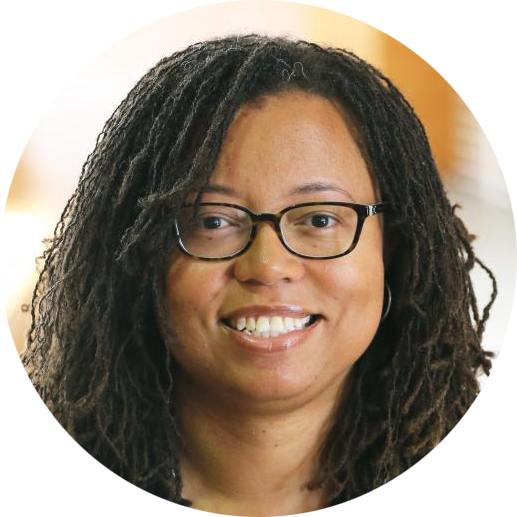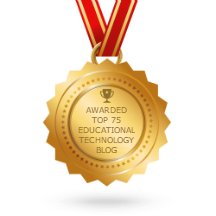Note the item about the Florida Virtual School below.
View this email in your browser
REL Southeast
Director’s Email
January 2023
Greetings from the REL Southeast,
In the past year, the REL Southeast has continued its pivotal role in advancing education across Florida, Georgia, Alabama, Mississippi, Louisiana, and South Carolina. Throughout the year, REL Southeast has actively engaged with educators, policymakers, and stakeholders, conducting rigorous research studies, offering technical assistance, and disseminating evidence-based practices to address critical educational challenges. Collaborating closely with state education agencies and districts, REL Southeast focused on boosting literacy, math, and science education, supporting school improvement initiatives, enhancing educator effectiveness, and fostering data-driven decision-making. Amidst its efforts, REL Southeast has strived to empower educators with valuable resources and knowledge, aiming to drive positive changes and improve student outcomes within the southeastern United States.
REL Southeast invites educators, families, and administrators to explore a highlight from each of our collaborative partnerships. We hope you find these materials informative and useful, and as always, thank you for helping to improve educational outcomes for every student in our region.
With gratitude,
Dr. Nicole Patton Terry
Director, REL Southeast
South Carolina Partnership to Implement Professional Learning Community: Emergent Literacy
The Partnership to Implement Professional Learning Community: Emergent Literacy (PLC-EL) at preschool sites in South Carolina completed all four modules of the PLC-EL. The final session occurred in-person and in addition to providing training on the final module, it served as a capstone and celebration to reflect on implementation of the PLC-EL at the preschool sites overall and for site facilitators and leaders to plan for sustainability.
Alabama Research Partnership on Improving English Learner Outcomes
REL Southeast implemented a train-the-trainer model for the WWC Practice Guide, Teaching Academic Content and Literacy to English Learners in Elementary and Middle Schools, and the companion PLC Facilitator’s Guide with twelve regional EL coaches and district trainers who co-delivered these trainings to school PLCs.
Mississippi Adolescent Literacy Partnership
REL Southeast staff filmed English, social studies, and science teachers incorporating evidence-based literacy practices into their instruction in Laurel, Mississippi elementary, middle, and high schools. Video clips will be included in the Professional Learning Community: Grades 4-12 Content Area Literacy tool REL Southeast is developing in conjunction with the partnership.
Florida Virtual School Partnership
The FLVS/REL Southeast Partnership kicked off their new collaborative project on engaging families in K-5 math and literacy with a session at the Florida Virtual School Annual Professional Development Conference in Orlando on September 19. This session focused on ideas for adapting activities in REL Appalachia’s Community Math Night Facilitator’s Toolkit to the virtual school context. The new project, Overcome the Overwhelm: Engaging Virtual School Families in Reading and Math through Strategic Sharing of Digital Resources, will run through June of 2026.
North Carolina Competency-Based Education Partnership
During 2023, the quarterly partnership meetings centered around distinct pillars of their Competency-based Education (CBE) Mastery Framework: Structure, Culture, Teaching, and Learning. National experts were welcomed to each meeting to share their relevant research on the respective topics. In the last quarter, students from Morgan Elementary and the Northeast Academy for Aerospace and Advanced Technologies were invited to share their experiences of learning within a CBE environment.
School Climate and Literacy for Georgia
Through the SCAL4GA partnership, the Georgia Department of Education conducted analyses to better understand the relationship between school climate and literacy outcomes. The results of the analyses showed that in Georgia the School Climate Star Rating was positively related to literacy scores. Additionally, the results showed that among the star rating dimensions, the School Climate surveys had the strongest relationship to literacy. After completion, REL Southeast and its core partners developed an infographic that described the project and its results.
Florida Panhandle K-5 Literacy Partnership
REL Southeast recently completed training for Florida Panhandle literacy coaches on Recommendation 2 of the Assisting Students Struggling with Reading: Response to Intervention (RtI) and Multi-Tier Intervention in the Primary Grades practice guide: Provide time for differentiated reading instruction for all students based on assessments of students’ current reading level.
Click here to learn more about the partnership.
Diversifying the Teacher Pipeline with Historically Black Colleges and Universities
In November 2023, REL Southeast convened partners for the second session of a series of activities to increase research and dissemination to enhance and diversify the teacher pipeline and workforce in Mississippi. In the in-person session, Partnerships Matter: Increasing Research Productivity and Rigorous Relevant Research, faculty and administrators from Jackson State University College of Education and Human Development discussed essential components of building, strengthening, and sustaining collaborative research partnerships to support evidence use in education.
Click here to learn more about the partnership.
You are receiving this email because you opted in at our website or provided your information at a REL Southeast sponsored event. Our mailing address is:
REL Southeast at Florida State University
2010 Levy AvenueSuite 100Tallahassee, FL 32310



































 12 Unique Blogs Are Written By Professors
12 Unique Blogs Are Written By Professors